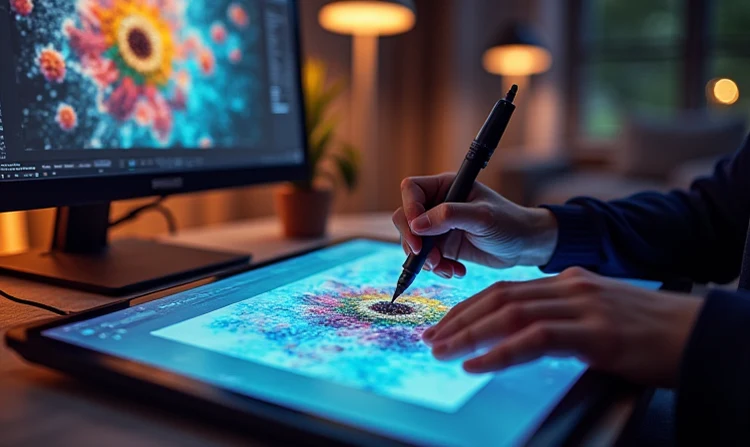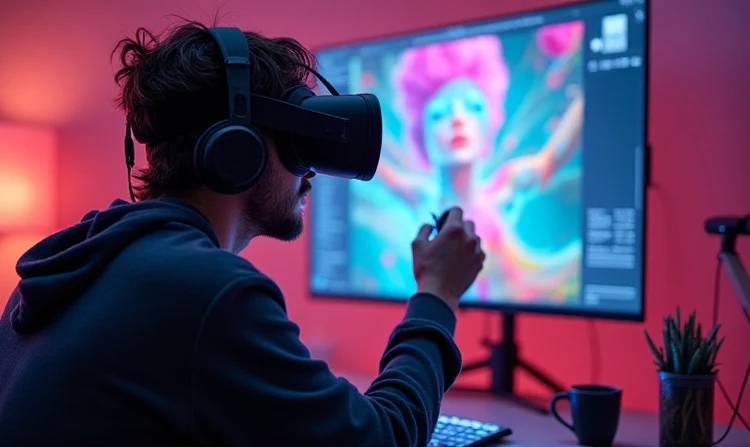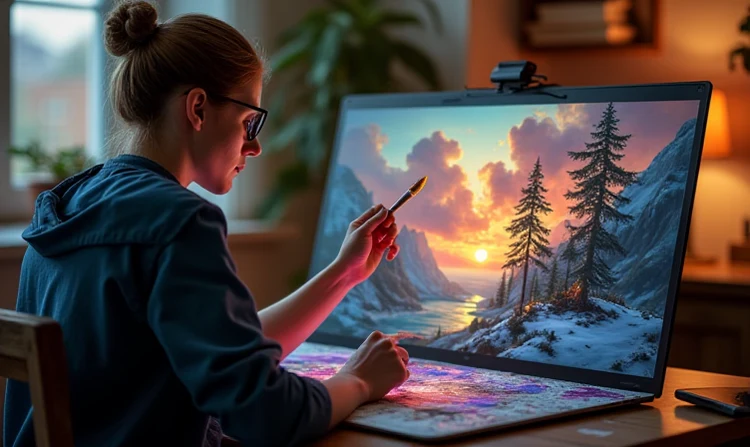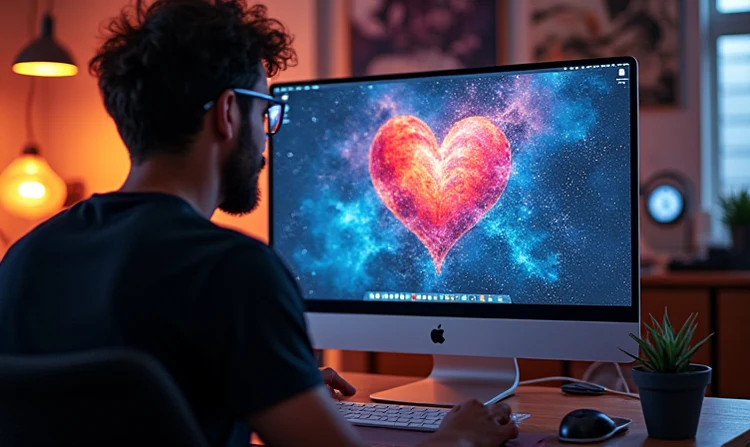🎨 Art and technology: new horizons of monetization 🌐
What opportunities are opening up for artists in the digital age? Choose a platform to monetize your art here. In today's world, art and technology are intertwined, opening up new horizons for creativity and monetization. From online galleries to digital platforms, modern technology provides artists with endless opportunities to market and sell their creations.
🎨 The Impact of Technology on the Art World
Technology is radically changing the way art is created, distributed, and monetized. Digital tools like image editors and 3D modeling are opening up new horizons for artistic expression. Online platforms like ArtStation and DeviantArt provide artists with a place to showcase and sell their work to a wide audience.
Ways of monetization in contemporary art
- Selling digital copies: Artists can sell digital copies of their work, which greatly expands the market.
- Print on demand: Printing technologies allow us to create high quality copies of works for sale.
- Online Exhibitions and Auctions: Digital platforms provide opportunities for online exhibitions and auctions.
🌟 Innovative platforms for art monetization
With the development of technology, new platforms and tools are emerging that help artists monetize their work:
- NFT Marketplaces: Platforms like OpenSea and Rarible allow artists to sell their work as non-fungible tokens (NFTs), which ensure uniqueness and limited access to their creations.
- Subscription services: Services like Patreon provide artists with the opportunity to earn recurring income from their subscribers for exclusive content.
- Crowdfunding: Crowdfunding platforms like Kickstarter help artists fund their projects by raising funds from a wide audience.
📈 Growth and Prospects of Monetization of Art through Technology
Every year, the possibilities for monetizing art through technology increase, opening up new paths for artists and creators. Let's look at the key trends and prospects:
Key trends
- Virtual Reality (VR) and Augmented Reality (AR): These technologies make it possible to create fully immersive and interactive artificial worlds, offering viewers a new experience.
- Artificial Intelligence (AI): AI is opening up new frontiers in art creation, from automated image generation to personalized artificial works.
Market Prospects
- Global Access: Digital technology removes geographic barriers, allowing artists to reach a global audience.
- Sustainability: Technology offers green ways to create and distribute art, minimizing waste and environmental footprint.
🎭 The Impact of Technology on the Art Community
Technology not only opens up new ways to monetize art, but also fosters unique artistic communities. Social media and online platforms allow artists to share ideas, receive feedback, and collaborate internationally. This creates a more inclusive and dynamic artistic environment where everyone can find their place and audience.
📚 Learning and skill development through technology
An important part of success in the arts is continuous learning and skill development. Technology offers many tools and resources for learning:
Online courses and learning platforms
- Skillshare: The platform offers courses on various aspects of art, from graphic design to digital painting.
- Coursera and Udemy: These sites offer training courses developed by leading universities and industry.
Social networks and forums
- Instagram and Pinterest: Great platforms for inspiration and sharing ideas with other artists.
- ArtStation and Behance: Specialized platforms for showcasing portfolios and networking with industry professionals.
🌍 Global trends and impact on the art market
Globalization and digitalization have a significant impact on global trends in art. They contribute to the expansion of the market, providing artists with access to new audiences and ways to monetize. At the same time, these trends necessitate the adaptation and renewal of approaches to creativity and marketing.
⁉️🤔 Popular questions and answers
- What technologies are most influencing art today?
VR, AR, AI and digital platforms for creating and distributing art are having a huge impact.
- Is it possible to start a career as an artist using only digital platforms?
Yes, many artists successfully start and grow their careers through digital platforms and social media.
- What are the best platforms for monetizing art?
NFT marketplaces, subscription services like Patreon, and online galleries are popular options.
- Does digital technology influence traditional art?
Yes, they offer new tools and techniques for traditional art, and expand the possibilities for its presentation and sale.
- How can technology-based learning help artists?
Online courses and platforms provide access to knowledge and skills anywhere in the world, promoting continuous development and learning.
💎 Results and conclusions
Technology has had a huge impact on art, opening up new horizons for its creation, distribution, and monetization. It provides artists with unique tools and platforms to express their creativity and reach a global audience. At the same time, it is important to constantly learn and adapt to the changing digital world to stay relevant and competitive.
Technology in the arts is not only a means to commercial success, but also a gateway to new forms of creative expression and cross-cultural interaction. This is an era in which creativity and innovation go hand in hand, opening up endless possibilities for artists and creators around the world.




